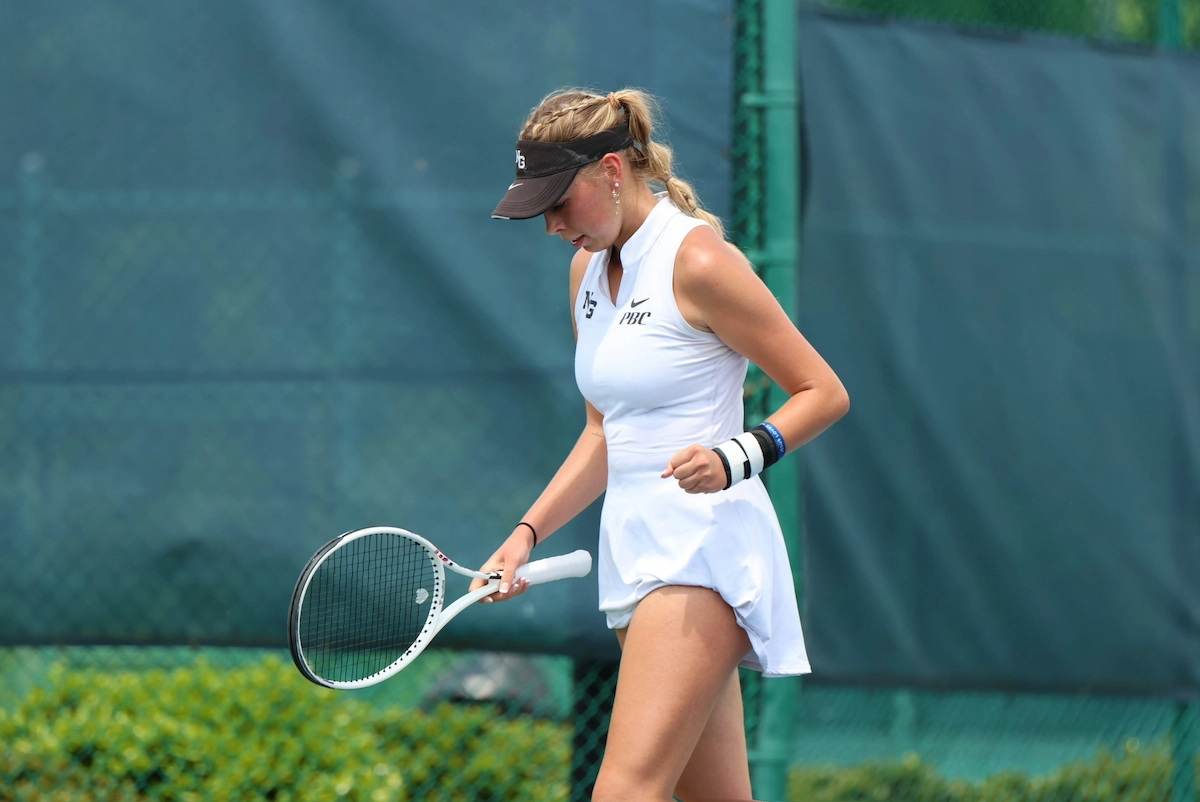
How to Stay Focused During the College Recruiting Process
Practical Tips from Sara Dahlström, Former Division 1 Student-Athlete
Sara Dahlström is a professional tennis player from Sweden, but she also competed in Division 1 tennis as a student-athlete for the University of Florida (Florida Gators) earlier in her career. During her college years, she learned the importance of balancing sport and academics and gained first-hand experience of the challenges that the college recruiting process can bring. Today, she shares her best tips to help other young athletes stay focused during this important period!
When the final year of secondary school approaches, you know there are only a few months left before it’s time for university. At that point, it’s easy to lose focus, and that’s something you need to work on maintaining. The future is rarely certain, and you can’t rely on sport alone to take you exactly where you want to go. That’s why it’s important to spend time and energy on performing well in school.
Often, college coaches in the U.S. prioritise your physical and athletic abilities over your academic performance. But in the end, coaches don’t have much influence when it comes to accepting your college application. The application also includes your academic merits and grades, which must be accepted by the admissions office.
Of course, there are exceptions and shortcuts for athletes to still get into their chosen universities, but that doesn’t change the fact that keeping focus in school is crucial. So how can you maintain your grades during the college recruiting process?
Tip 1: Be in the Present
Be where your feet are. With that expression, I want to emphasise the importance of being present. Where your feet are right now is what matters most at the moment. You can’t undo the past, and you can’t fast-forward into the future just because you want to get there faster.
It’s important to focus on the right things and not forget that you still need to do your best where you are right now. This applies both in sport and in school. It’s easy to fall into the mindset that everything will work out simply because you have a plan. But the work still needs to be done from the time you start the college sports recruiting process until you graduate from university.
The competition doesn’t get easier just because you’ve secured a spot. Instead, you’re expected to do what it takes to keep your place. Otherwise, someone else will take it, and you’ll regret not putting in more effort. So, it’s best to start early, so you’re prepared for the coming years.
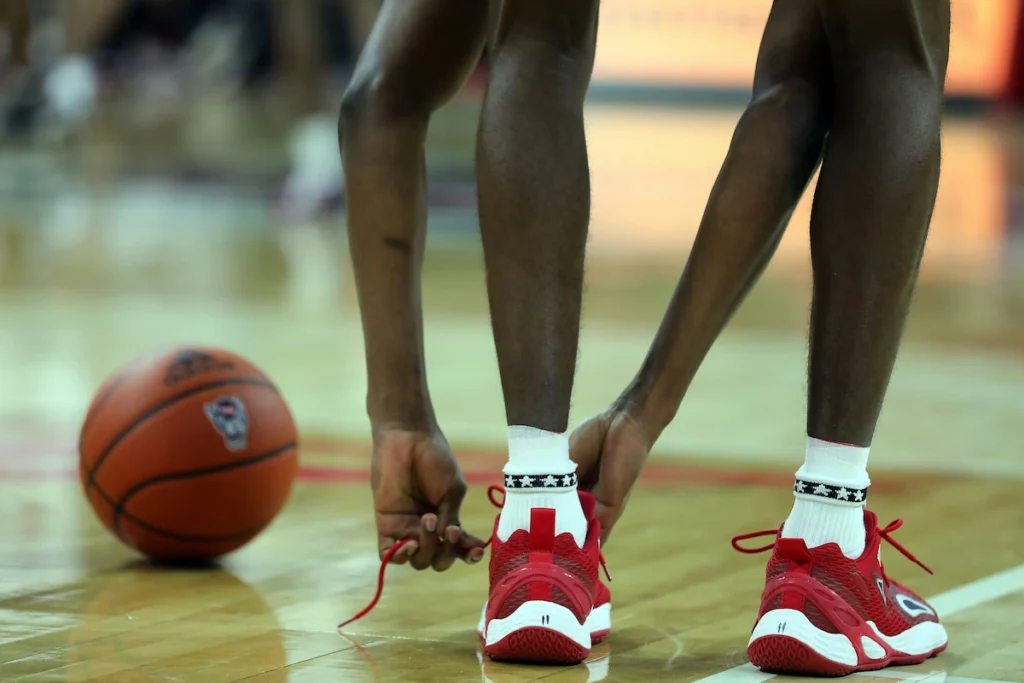
Tip 2: Find the Balance Between Sport and School
Learn to balance your sport and your studies. It’s easy to lose focus in school because you’re so eager about the opportunity to pursue your sport and move to college in the U.S.
Many students neglect their grades, thinking sport will be the key to everything in the future. But it’s important to remember that you can’t predict what’s ahead. Worst case, you end up injured and wish you had taken school more seriously. Or perhaps roster spots at your dream university start disappearing one by one because you didn’t plan your sport and academics together.
With that said, you should remind yourself that academics and athletics go hand in hand at university. If you don’t perform in school, you’re not allowed to train or compete with the team. And if you don’t put effort into your sport, you’ll likely lose your place on the team and, therefore, your spot at the university.
The idea of being a student-athlete is to be able to pursue your sport while also getting an education. This gives you something to fall back on if, in the future, you don’t want to or can’t continue with sport. That’s why it’s important to prioritise both areas and perform well in both.
Start early by trying to find a good balance between school and sport. This will make things easier later on when you’ll need to do it under more stressful conditions, with greater expectations placed on you.
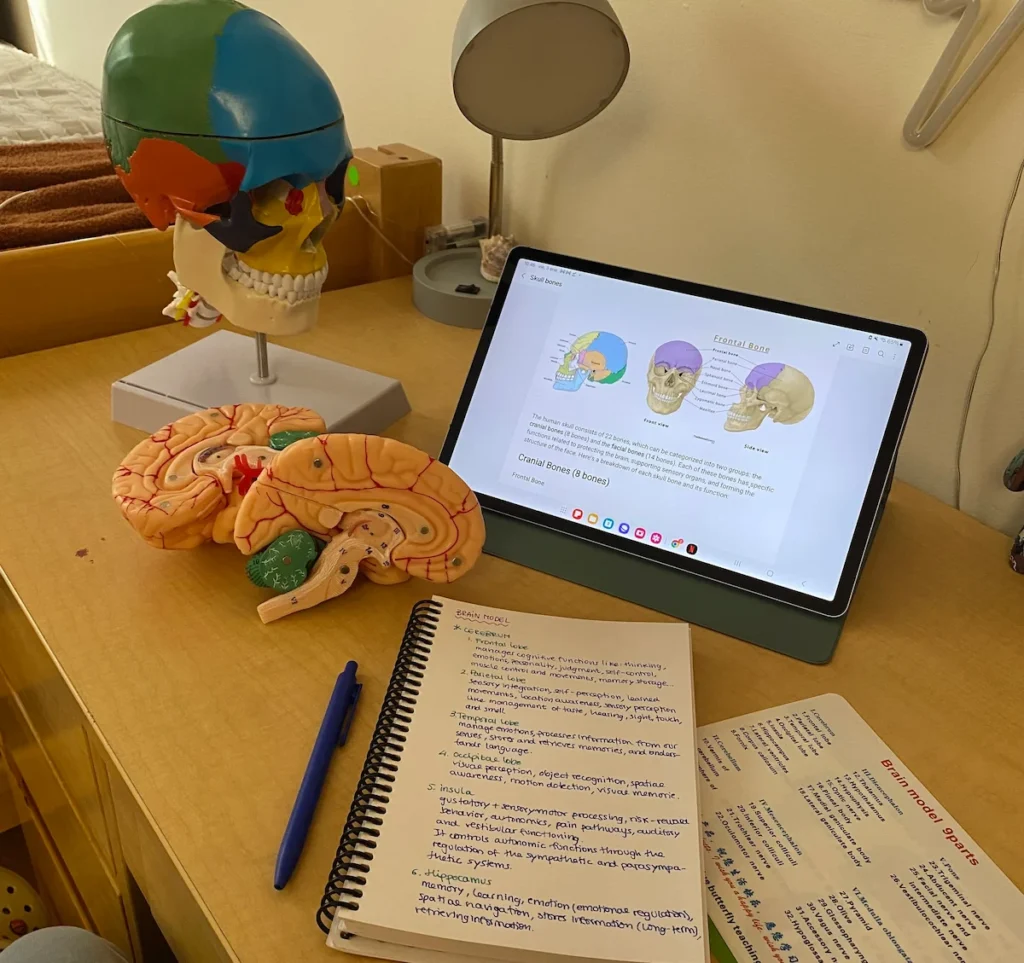
Tip 3: Communicate and Ask for Help
Plan, communicate, and ask for help. The recruitment process is a complicated and time-consuming chapter for student-athletes, and it can be hard to know how to move forward. If life gets overwhelming, or if one area feels weaker than another, ask for help and advice from someone you trust. Tell them what doesn’t feel as good as before, and don’t feel like you need to handle everything alone.
If an athlete performs well in one area but falls behind in another, it’s easy to focus only on what gives positive results and neglect what’s harder. In such situations, once again, planning and finding balance between academics and athletics becomes crucial.
It’s also important to communicate what feels challenging to your support system. At university, athletes often have access to staff who help them find the best ways to balance sport with studies, plan schedules, and provide support when needed.
Keep this in mind during the college recruiting process:
- Focus and balance are key: be present in the moment and perform where you are right now.
- Good grades matter: strong academic results are necessary to be admitted to university, even as a student-athlete.
- School is just as important as sport: the two go hand in hand at university.
- Your education is your safety net: if sport doesn’t go as planned, you’ll have something to fall back on.
- Plan wisely, communicate openly, and ask for help when you need it. Start building these habits now, and your transition to university will be much smoother.
Do you want to study in the U.S. while also training and competing in your sport?
At Keystone Sports, we have many years of experience helping young athletes take the step to university in the U.S. We support you throughout the entire college recruitment process, from converting your grades into GPA and preparing you for the SAT, to finding the right university and division, and securing your sports scholarship.
Fill out our interest form to receive a free evaluation of your chances to be recruited and compete in college sports in the U.S.
Share this article:
More related articles
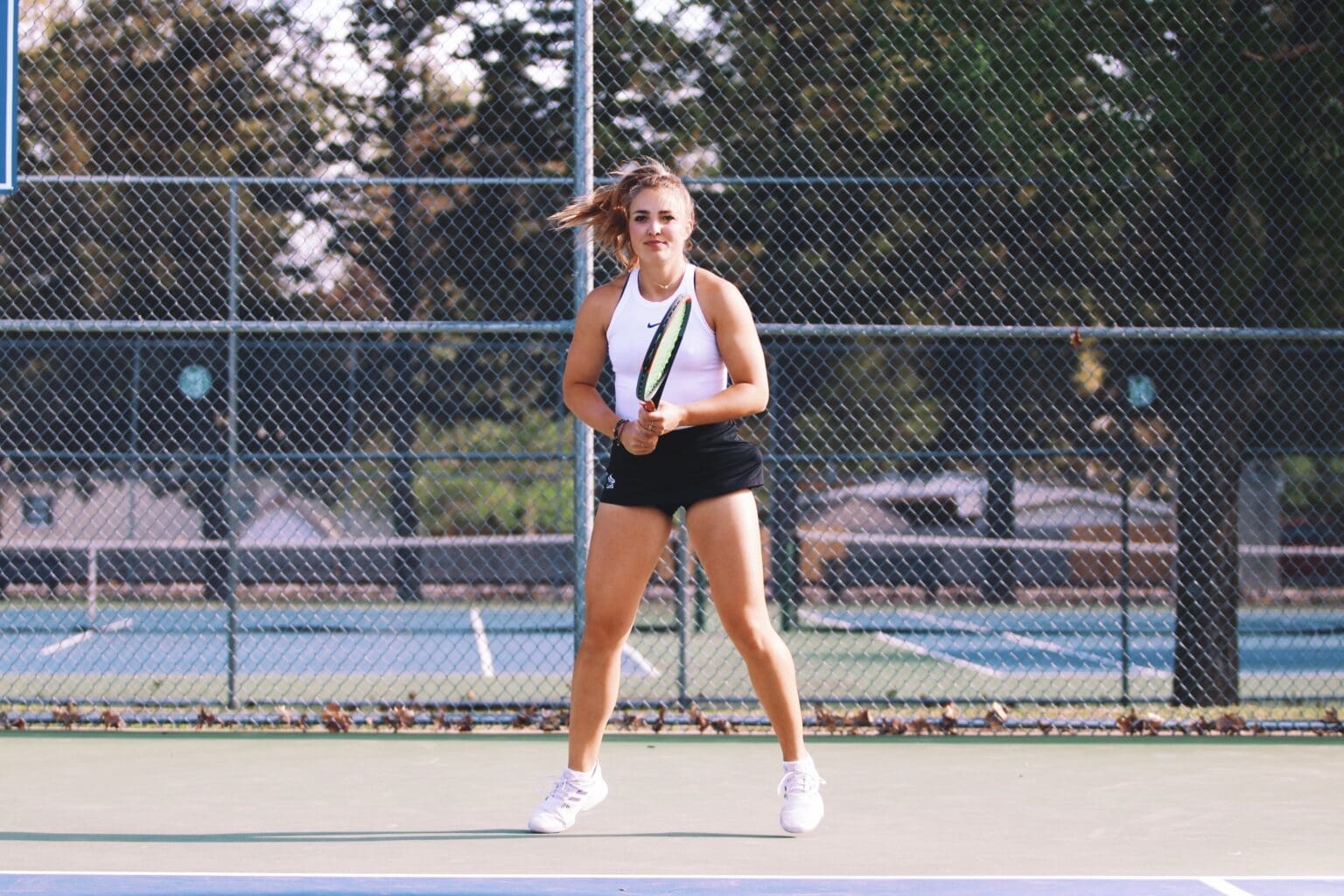
“My tennis showcase experience”
Are you dreaming of playing tennis in the USA and obtaining a tennis scholarship? Attending a college showcase is an excellent step on the way! Read about graduated tennis student-athlete Jasmin Hauska’s firsthand experience of attending Keystone Sports’ tennis showcase.
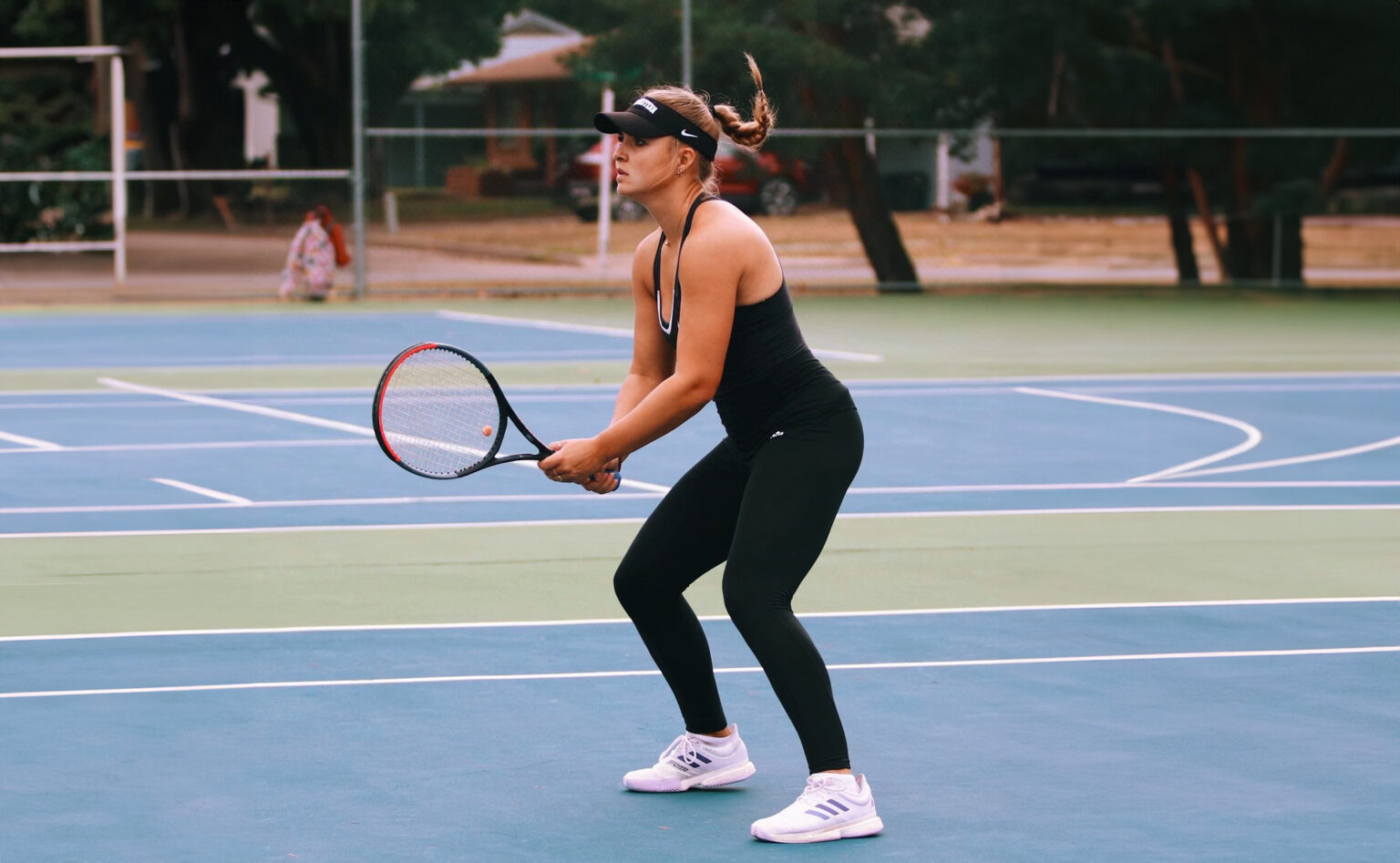
Top Questions to Ask a College Coach During the Recruitment Process
One important step on the journey towards a sports scholarship is meeting with coaches who are interested in recruiting you for their university teams. But what are some good questions to ask during these meetings?
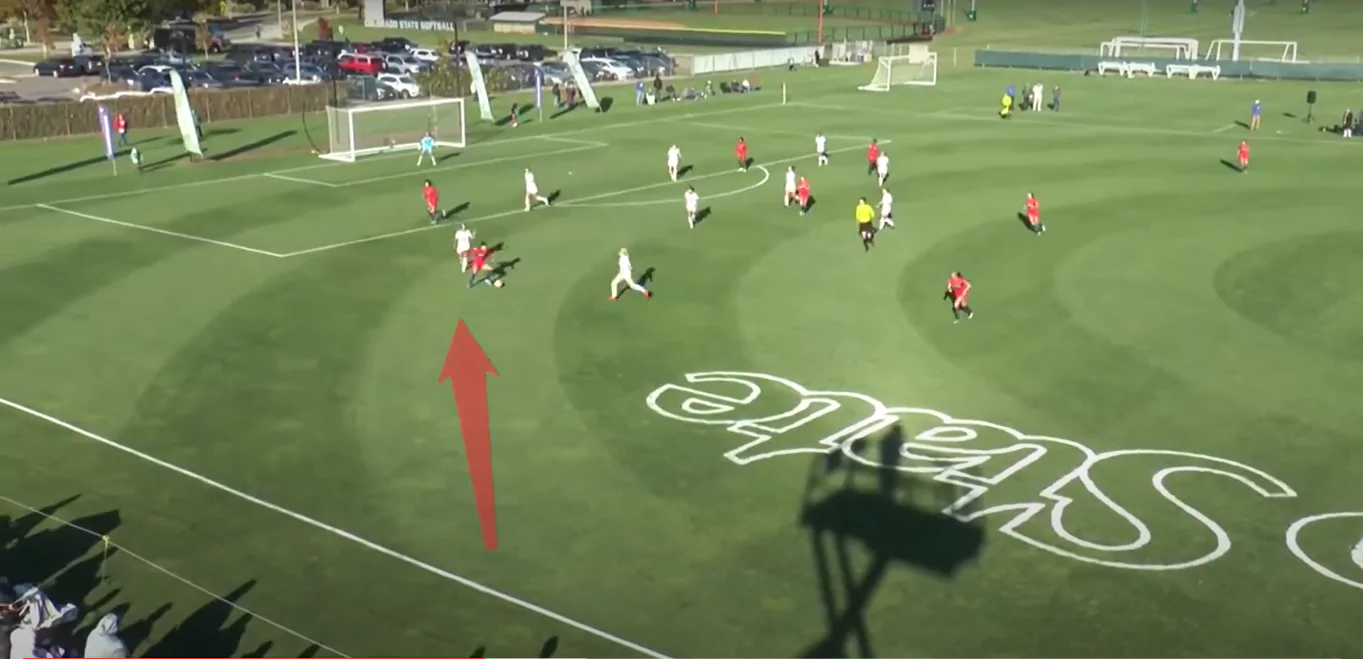
How to Make a Recruiting Video
Learn how to create a college recruiting video that catches the attention of US university coaches! Get tips from Keystone Sports ambassador Olivia, who secured a football scholarship and now studies and plays football in America.

